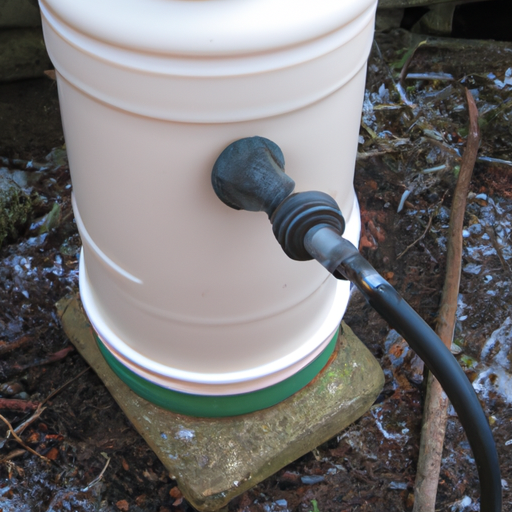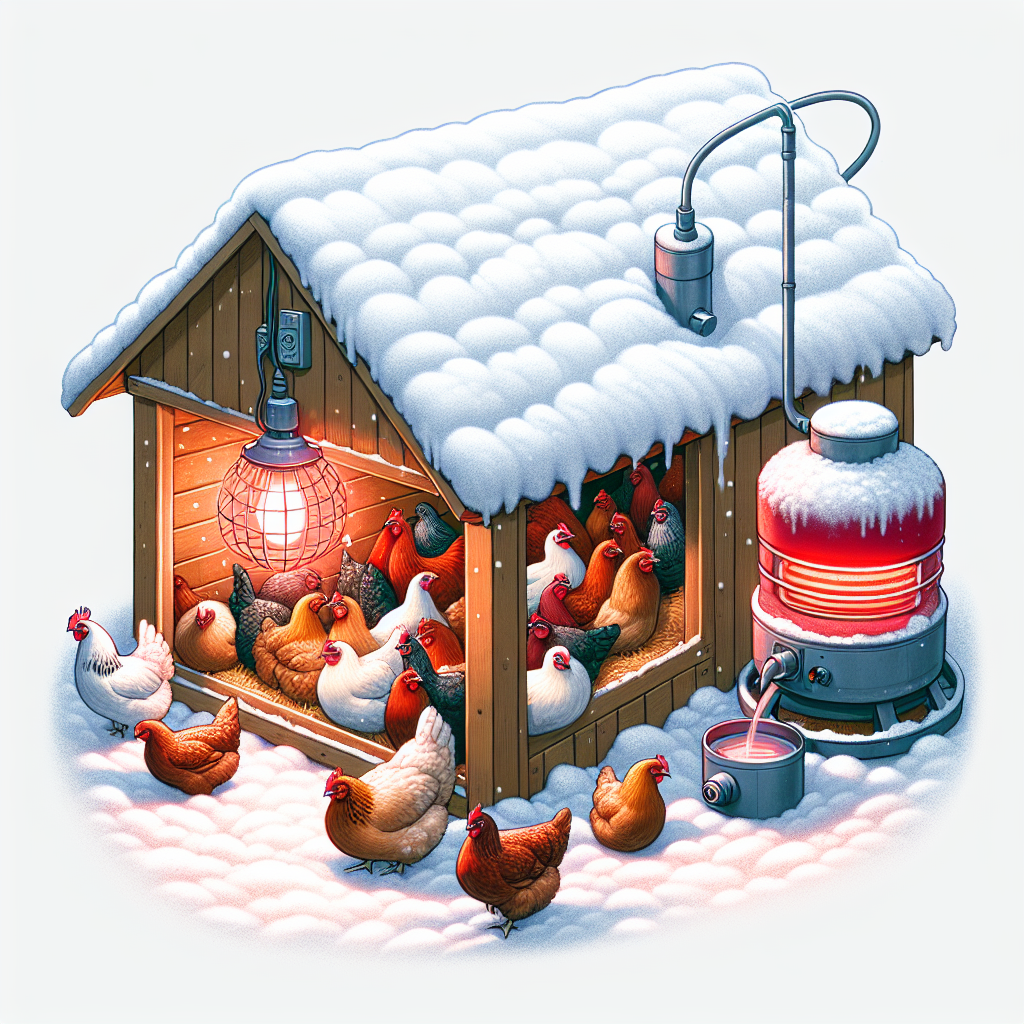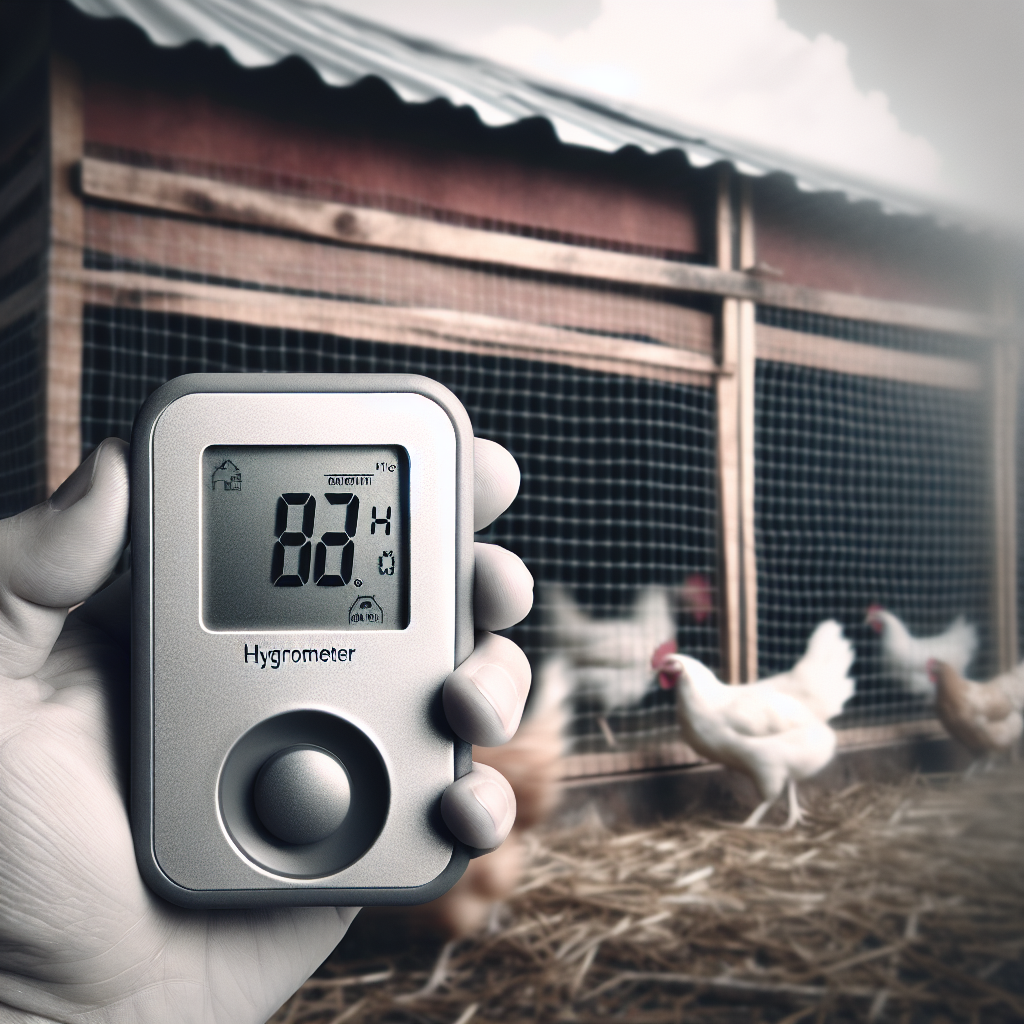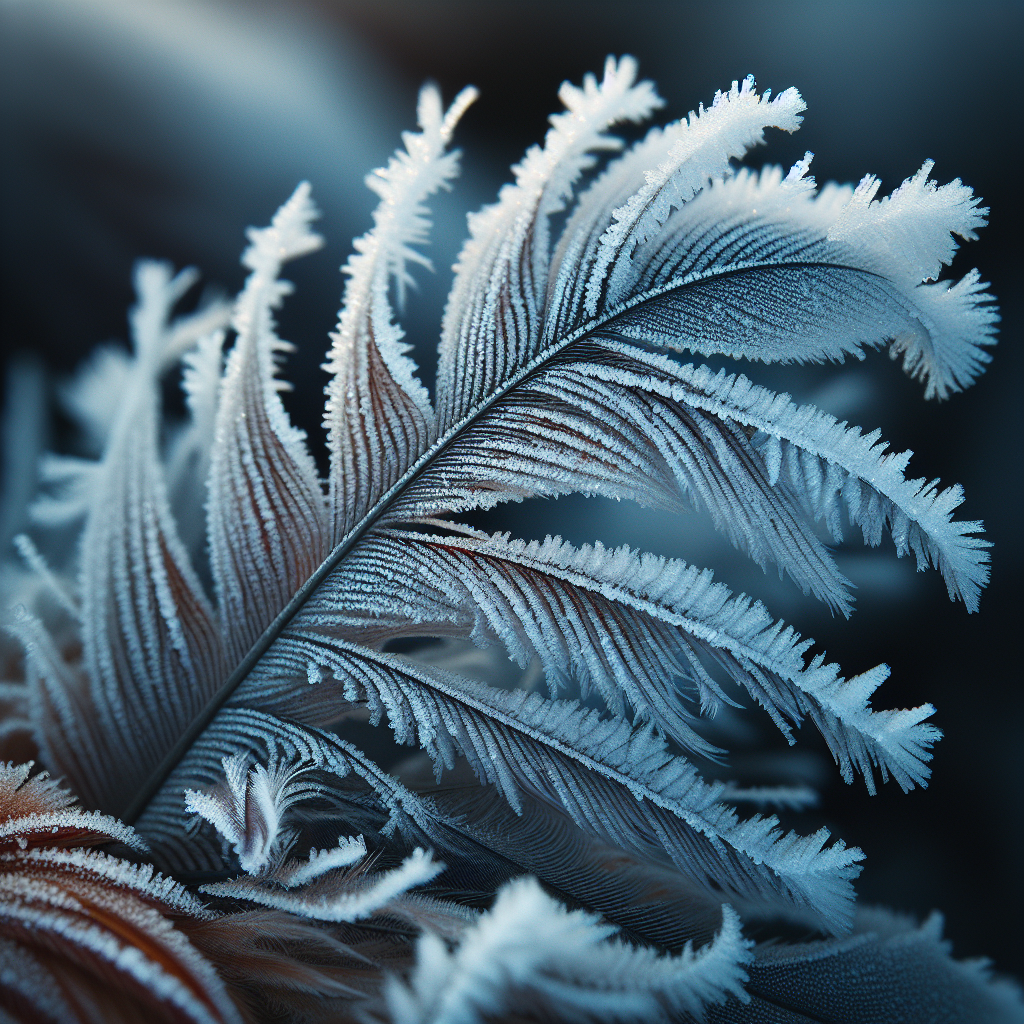Freezing temperatures can be quite challenging for backyard chicken owners, especially when it comes to providing their feathered friends with unfrozen water. As a chicken owner, you may be wondering how you can ensure that your chickens have access to unfrozen water during the winter months. In this article, we will explore some simple yet effective ways to keep your chickens hydrated and happy, even when the temperatures are freezing outside. With these tips, you’ll be able to ensure that your chickens have access to the water they need to stay healthy and robust throughout the winter season.
Choosing the Right Watering System
Consider using heated waterers
When it comes to ensuring your chickens have access to unfrozen water during freezing temperatures, one effective solution is to use heated waterers. These specialized waterers are equipped with a heating element that prevents the water from freezing. They are easy to use and require minimal maintenance, making them a convenient option for keeping your chickens hydrated in cold weather.
Opt for insulated waterers
Another option to consider is insulated waterers. These waterers are designed with double walls and insulation, which help to maintain the water’s temperature and prevent it from freezing quickly. Insulated waterers are a cost-effective choice that can provide your chickens with access to unfrozen water for extended periods during freezing temperatures.
Use a nipple waterer system
Nipple waterer systems are becoming increasingly popular among chicken owners due to their many advantages. These systems are designed with small nipples that release water when chickens peck at them. This design helps to minimize water spillage and reduce the chances of freezing. Nipple waterer systems are also easy to clean and can provide a reliable source of unfrozen water for your chickens during freezing temperatures.
Install a heated bowl or dish
Alternatively, you can install a heated bowl or dish specifically designed for chicken waterers. These bowls or dishes are equipped with an internal heater that keeps the water warm and prevents it from freezing. They are a convenient option for chicken owners who want to ensure their flock has access to a consistent supply of unfrozen water during freezing temperatures.
Keeping Water from Freezing
Cover waterers during the night
One simple way to prevent water from freezing overnight is to cover your waterers. Insulating covers or blankets can be placed over the waterers to help retain the heat and keep the water from freezing as quickly. By covering the waterers during the night, you can maintain a supply of unfrozen water for your chickens throughout the day.
Use a heated base or pad
To prevent waterers from freezing, you can use a heated base or pad. These devices are designed to provide a constant source of heat to the waterer, preventing the water from freezing even in extremely cold temperatures. They are efficient and reliable, ensuring that your chickens always have access to unfrozen water.
Add sugar or salt to the water
Adding sugar or salt to the water can be a temporary solution to prevent freezing. The sugar or salt acts as an antifreeze and lowers the freezing point of the water. However, it’s important to note that excessive amounts of sugar or salt can be harmful to your chickens’ health. Therefore, this method should only be used in moderation and as a temporary solution until a more permanent solution can be implemented.
Place a floating device in the water
A simple but effective method to prevent water from freezing is to place a floating device, such as a rubber ball or foam block, in the water. The floating device helps to disrupt the formation of ice by creating movement in the water. This movement prevents the water from freezing solid, ensuring that your chickens have access to unfrozen water.
Use a solar-powered water heater
If you’re looking for an eco-friendly option, a solar-powered water heater is a great choice. These heaters use solar energy to warm the water and keep it from freezing. They are cost-effective and sustainable, providing a reliable source of unfrozen water for your chickens while reducing your carbon footprint.
Insulate the waterer
Insulating the waterer itself can also help to prevent freezing. Wrapping the waterer with insulating materials, such as bubble wrap or foam insulation, can help to retain the heat and slow down the freezing process. This method is especially useful for smaller waterers or those that cannot accommodate a heating element.
Ensuring Adequate Water Supply
Check water multiple times a day
To ensure an adequate water supply for your chickens, it’s important to check their waterers multiple times a day. Freezing temperatures can quickly turn unfrozen water into ice, leaving your chickens without access to hydration. By regularly checking the waterers, you can promptly address any freezing issues and ensure that your flock has a consistent supply of unfrozen water.
Monitor water intake of chickens
Monitoring the water intake of your chickens during freezing temperatures is crucial to ensure their hydration needs are met. In cold weather, chickens may drink less due to decreased activity and lower metabolic rates. By closely observing their water consumption, you can determine if they are getting enough water or if additional measures need to be taken to encourage hydration.
Provide alternative water sources
During freezing temperatures, it’s important to provide alternative water sources for your chickens in case their primary waterer freezes. This can include backup waterers or temporary solutions, such as small bowls or dishes. By having multiple water sources available, you can ensure that your chickens always have access to unfrozen water, even if their main waterer becomes frozen.
Adjust feeding regimen
Adjusting your chickens’ feeding regimen can also help ensure an adequate water supply during freezing temperatures. Increasing the moisture content in their feed, such as through the addition of fruits or vegetables, can provide some hydration and compensate for reduced water intake. However, it’s important to strike a balance and not overfeed, as this can lead to other health issues.
Offer warm water as a temporary solution
In cases where waterers freeze unexpectedly, offering warm water can be a temporary solution to provide immediate hydration for your chickens. This can be done by bringing warm water from your home and pouring it into their waterers or using a separate container. However, warm water should only be provided occasionally as a short-term solution, as it can quickly cool down and freeze in cold temperatures.
Preventing Water Contamination and Health Issues
Clean and disinfect waterers regularly
To prevent water contamination and potential health issues for your chickens, it’s essential to clean and disinfect their waterers regularly. This helps remove any bacteria or debris that may accumulate and ensures a clean and hygienic water source. Use mild detergents or specialized poultry-friendly cleaners, and rinse thoroughly to remove any residue before refilling the waterers.
Monitor for signs of bacterial growth
Monitoring your waterers for signs of bacterial growth is important to detect any issues early on. Bacteria, such as E. coli or salmonella, can pose serious health risks to your chickens. Look for slime, discoloration, or unpleasant odors in the waterers, as these can be indications of bacterial growth. If you notice any signs, immediately clean and disinfect the waterers and consider seeking veterinary advice.
Avoid using chemicals near the water source
When maintaining your chickens’ waterers, it’s essential to avoid using any chemicals or cleaning agents near the water source. Chemicals can contaminate the water and be harmful to your chickens. Instead, use poultry-safe cleaning solutions or natural alternatives, such as vinegar or hydrogen peroxide, to ensure the water remains clean and safe for consumption.
Prevent wild bird access to the water
Wild birds can carry diseases that can be transmitted to your chickens through contaminated water. To prevent wild bird access to the water, consider using chicken-specific waterers that are designed to deter other birds. Position the waterers in areas that are less accessible to wild birds or use physical barriers, such as netting or fencing, to prevent their entry.
Ensure proper ventilation in the coop
Proper ventilation in the chicken coop is crucial for maintaining air quality and preventing moisture buildup. Excessive moisture can lead to bacterial growth and increase the risk of water contamination. Ensure that your coop has adequate ventilation, with the placement of vents or windows that allow for proper airflow. This helps to maintain a healthy environment and minimize the chances of water-related health issues.




